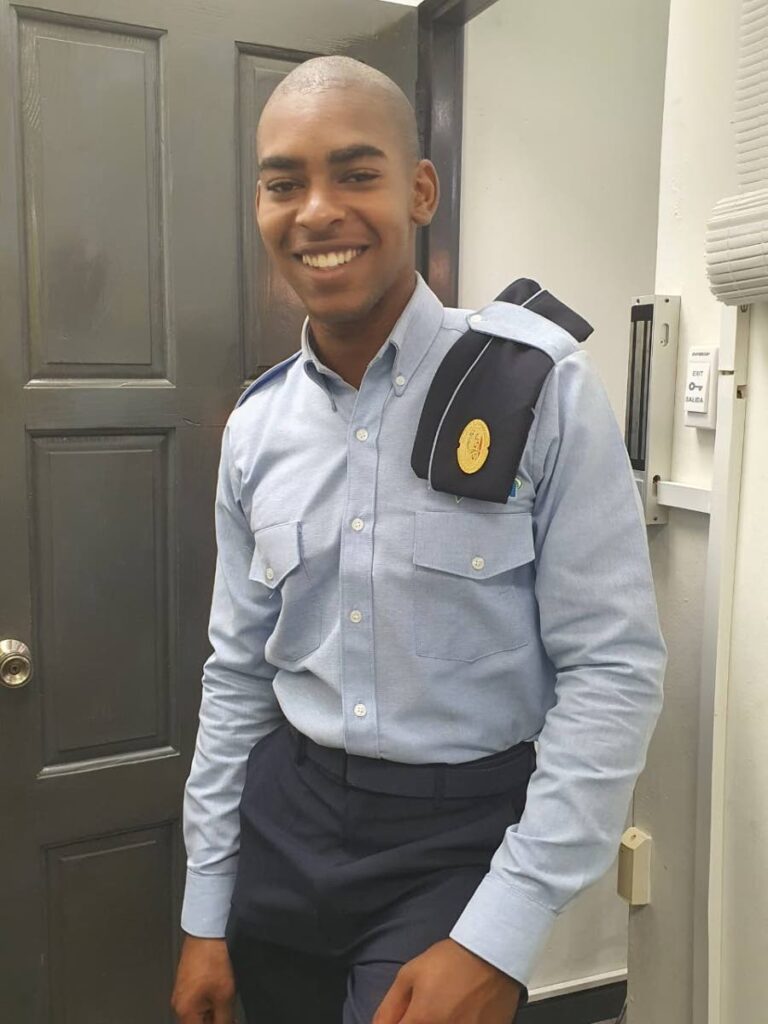Murdered teen’s sister recounts sibling's struggles

"The streets had already embraced him."
Those were the words of Maritza Matas-Felix, sister of murdered teenager Olun Jones, as she told his life story on the Tony Lee and Dale Enoch morning show on I95.5 FM on Friday.
Jones, 18, was shot dead outside a parlour in Bon Air Gardens on Tuesday night. Police found 57 spent shells at the scene, the majority from high-calibre automatic rifles.
Jones, who got his surname from his stepfather, presented problems for his sister Matas-Felix in his later years.
His mother was ill with pulmonary fibrosis and a breathing condition. She worked, but her life was difficult.
He did not grow up with his father: when they were introduced, Jones was in primary school, and his mother was severely ill. Matas-Feliz said when they found out Jones was their brother, they stayed in contact and assisted financially.
"The confusion in Olun's life came after his mom's death. She died in his arms when he was in standard five. It was very traumatic; he loved his mother dearly."
His mother arranged for a friend to take Olun in when she died, but Matas-Felix is unsure if legal measures were put in place to accommodate it.
The person who was to care for him lived abroad and visited after his mother's death but eventually returned overseas and left Jones in the care of her sister, whom Matas-Felix did not know.
"There were legalities that prevented her from adopting Olun. His stepfather, where he had gotten his surname from, was not around to give permission. We could not find him."
Olun had a difficult time dealing with his mother’s death and began acting out.
His caretaker would eventually call Matas-Felix, saying, "I'm not dealing with this, I'm carrying him back where I got him."
He would then return to the Bon Air home with his two elder brothers.
"They were young men who themselves were also troubled. His eldest brother tried assisting him."
But Matas-Felix said she received a WhatsApp message from Jones's older brother, saying he was no longer able to take care of him as he was migrating to start a new life. At that time, Jones was already in the care of a stranger in Morvant.
"He ran away from the home in Morvant and visited another relative's home, but was turned away. He then hitchhiked his way back to Bon Air, where he would go from neighbour to neighbour looking for a place to sleep and food."
He opened up to Matas-Felix about the verbal and physical abuse he suffered at the house in Morvant.
"I remember getting a phone call from one of his friends saying, 'Your brother is here, and I think you need to come.'"
Jones stayed at a friend's home until the friend's grandmother was unable to house him any more. Matas-Felix described the woman as kind-hearted and empathetic.
"He was given a place to rest his head, he was given food, and I believe he was given love as well. She took care of him."
Matas-Felix and her siblings were unable to house Jones, but they assisted financially at the home where he was staying.
"I took charge of his school meetings and other school-related matters."
Matas-Felix recounted reaching out to the Children's Authority about her brother but not receiving any assistance.
He struggled at school, and his caretaker, no longer able to house him, gave Matas-Felix 14 days to find new arrangements.
After visiting numerous homes and contacting the Children's Authority for a second time, the Margaret Kistow Home eventually took him in but he began running away, and the manager said she could no longer house him because of the covid19 pandemic and the risk he posed to others.
"I called the Children's Authority and told them I was bringing Olun to them."
It was only then that Matas-Felix received help for her brother.
She debunked rumours that Olun was ever detained at the Youth Training Centre but said he was in a safe home where the family was allowed limited contact with him.
He was not supposed to be there for more than two weeks, but because of the pandemic, other homes were filled, so he stayed at the safe home for over a year. While at the home, Jones had therapy for trauma related to his mother's death and abandonment issues.
Through the Children's Authority, he was enrolled in school again, and his behaviour improved.
"I understand he showed leadership skills at the home: he tried to guide young men there."
Matas-Felix said their father died from cancer-related issues and pleaded with her and her siblings not to leave Jones behind.
Jones joined the Military-Led Academic Training Programme (MiLAT), a social intervention programme designed to help at-risk young men.
"He got the opportunity to be a part of something bigger."
But he dropped out of the programme in August to try for a music career and eventually joined a gang, still hoping to advance his career. She said Jones, whose stage name was Jahlun the Artist, told her he had seen gang members become successful in the music industry and wanted that same success.
Newsday tried contacting the Children's Authority but was unsuccessful.

Comments
"Murdered teen’s sister recounts sibling’s struggles"